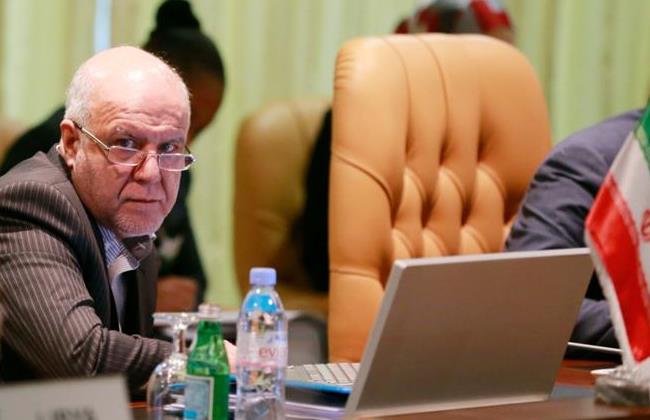 OPEC has no immediate plan to cut its output target for crude, and†Iran†is strong enough to withstand a deeper slump in prices even if the country must sell at $25 a barrel, Oil Minister Bijan Namdar Zanganeh said.
OPEC has no immediate plan to cut its output target for crude, and†Iran†is strong enough to withstand a deeper slump in prices even if the country must sell at $25 a barrel, Oil Minister Bijan Namdar Zanganeh said.ďIf the oil prices drop to $25 a barrel, there will yet again be no threat posed to Iranís oil industry,Ē Zanganeh told reporters yesterday at a conference in Tehran, according to the state-run Fars news agency.
Brent crude traded below $50 yesterday in London. Oil has fallen about 30 percent since the Organization of Petroleum Exporting Countries decided on Nov. 27 to keep its ceiling unchanged at 30 million barrels a day. Iran isnít seeking for OPEC to hold an emergency meeting, Zanganeh said. The groupís next scheduled meeting is for June 5.
Iran together with†Venezuela†has called for OPEC, which supplies about 40 percent of the worldís oil, to work together to support a recovery in crude. The U.S. shale boom has contributed to a global glut, and Qatar and the United Arab Emirates estimate the oversupply at about 2 million barrels a day. Iran is hobbled by international sanctions over its nuclear program and struggling for market share.
Brent crude, a benchmark for more than half of the worldís oil, has slid 15 percent this month and was at $48.71 a barrel at 11:15 a.m. Singapore time. Oil fell almost 50 percent last year, the most since the 2008 financial crisis.
Market Upheaval
Iran is consulting with its fellow OPEC members to respond to the collapse, Zanganeh said, without providing details. As of yet, OPEC has made no decision to reduce its production ceiling, he said.
Upheaval in oil markets is the result of politics and decisions by producer countries, Zanganeh said, declining to be more specific. U.A.E. Energy Minister Suhail Al-Mazrouei said in Abu Dhabi yesterday that sustainable development in the oil industry cannot be achieved at current prices.
Iran is lowering the crude price assumed for this yearís budget to $40 a barrel, from $72, Fars reported Finance and Economy Minister Ali Tayebnia as saying Jan. 15. The Persian Gulf nation pumped 2.8 million barrels a day of oil in December, down from an average of 3.6 million in 2011, according to data compiled by Bloomberg.
OPEC members and non-OPEC producers must cooperate ďto generate investment in the oil industry,Ē Zanganeh said. ďThis will bring about desired conditions for both producers and consumers.Ē
By Bloomberg
The Iran Project is not responsible for the content of quoted articles.










